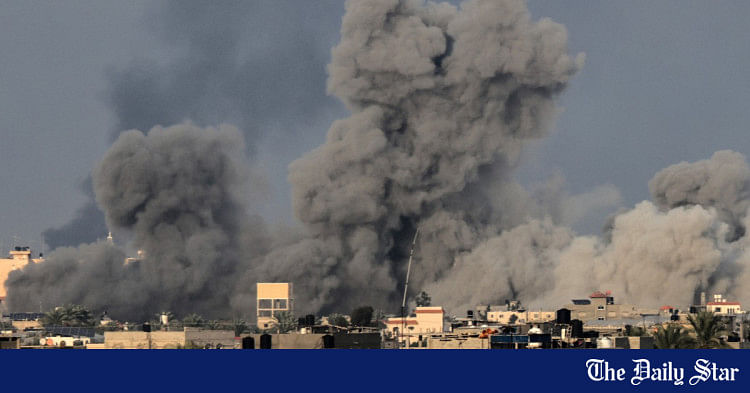/cloudfront-us-east-2.images.arcpublishing.com/reuters/ANZ7IHVDLFIQFCMDPJRW26JYY4.jpg)
The ongoing conflict in Gaza has drawn international attention, with the United States expressing concerns over the rising civilian death toll. Despite the escalating situation, the U.S. is unlikely to reconsider its military aid to Israel, currently standing at $3.8 billion annually, with an additional $14 billion requested from Congress.
The Biden administration has been urging Israel to minimize civilian casualties in its offensive in southern Gaza. However, it is not expected to enforce measures that would compel Israel to alter its tactics. U.S. officials believe that private negotiations with Israel are effective in achieving progress. Yet, the reduction of military support to Israel carries potential risks, such as encouraging other parties to join the conflict and weakening Israel's deterrence effect.
The conflict has resulted in a humanitarian crisis, with mass civilian casualties and dire shortages of food, water, fuel, and medicine. More than 17,000 people have been killed in Gaza since Israel began its bombardment in response to a cross-border rampage by Hamas militants.
The U.S. has criticized Israel's conduct in the war against Hamas, highlighting a gap between Israel's intentions to protect civilians and the mounting casualties on the ground. U.S. Secretary of State Antony Blinken and President Joe Biden have both emphasized the need to protect civilians and separate the civilian population from Hamas.
Arab states, led by the United Arab Emirates, have requested a vote on a draft resolution at the UN Security Council, pushing for a humanitarian ceasefire. However, both the U.S. and Israel oppose this move. Despite the soaring death toll in Gaza, the U.S. is unlikely to rethink its weapons supplies to Israel.


